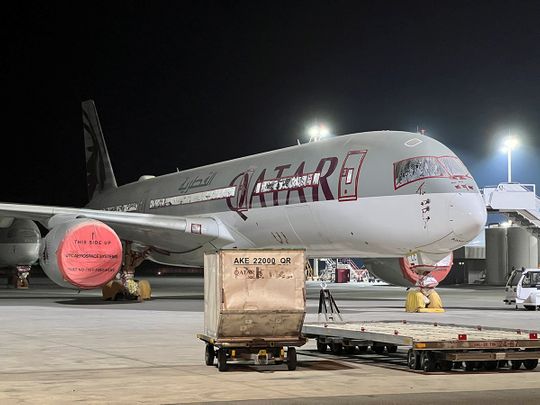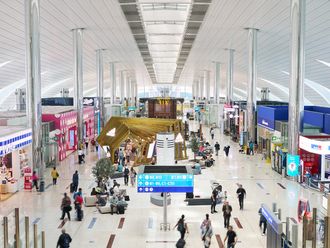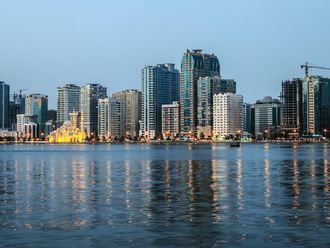
Airbus SE and Qatar Airways have agreed to end their long-running battle over flaking paint on the A350 flagship jetliner, averting an open showdown in court between the European plane manufacturer and one of its most important customers.
While the details of the settlement are confidential, the two parties will discontinue their legal claims, they said in separate statements. They also agreed to embark on a repair project with the aim of getting the grounded planes back in the air.
“This agreement will enable Qatar Airways and Airbus to move forward and work together as partners,” Qatar and Airbus said.
Airbus said it will reinstate Qatar’s orders for 50 A321 single-aisle aircraft that the company had revoked as part of the dispute. It will also hand over the remaining 23 A350s from Qatar’s pending order book, with deliveries starting this year. Qatar will get the A321neo models from 2026, an Airbus spokesman said. That’s later than the previous schedule due to commence in 2023.
Airbus and Qatar spent more than a year facing off in an unusually public dispute over surface degradation on the A350 wide-body jets purchased by the Doha-based airline, the first carrier to operate Airbus’s most advanced model. Airbus hasn’t disputed that some models show wear, though the manufacturer has insisted it’s not a safety risk.
The conflict escalated when Qatar grounded 29 of its 53-strong A350 fleet after the local regulator revoked their airworthiness certificates, seeking in excess of $2 billion in compensation.
When Qatar refused to take delivery of pending aircraft, Airbus cancelled Qatar’s order for the best-selling A321 model, on the grounds that the airline’s refusal to take further A350s gave the planemaker a right to cancel all other agreements with the carrier.
The high-stakes showdown pitted Airbus against one of its most important customers. The region’s three main airlines - Emirates, Qatar, and Etihad Airways - have historically been big buyers of wide-body aircraft.
The A350 is built largely from composite materials that show differing thermal properties to aluminum traditionally used to build aircraft, which Airbus has said partly explains the flaking.
Qatar and Airbus said that the settlement agreement wasn’t an admission of liability for either party. A trial at London’s High Court was meant to commence this summer.







